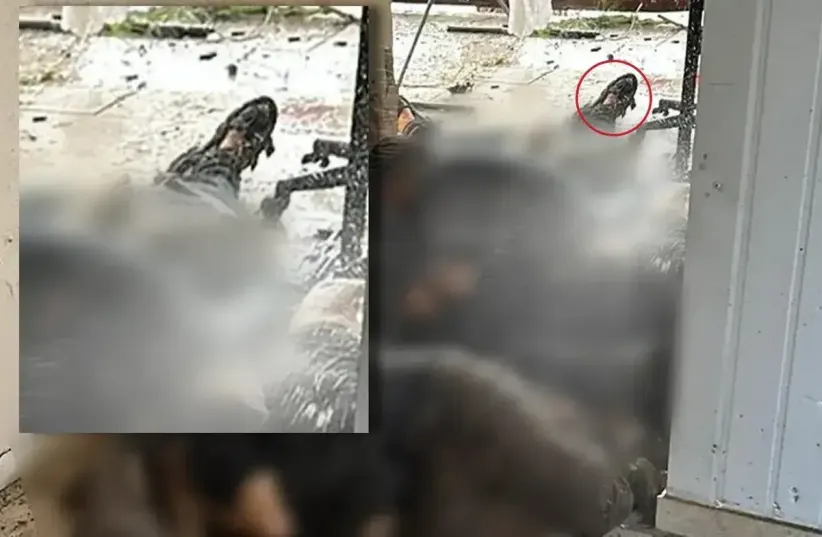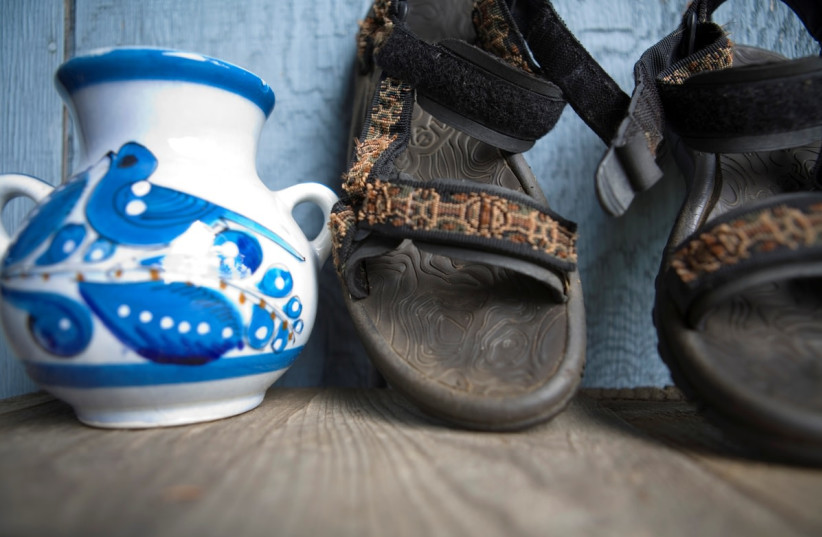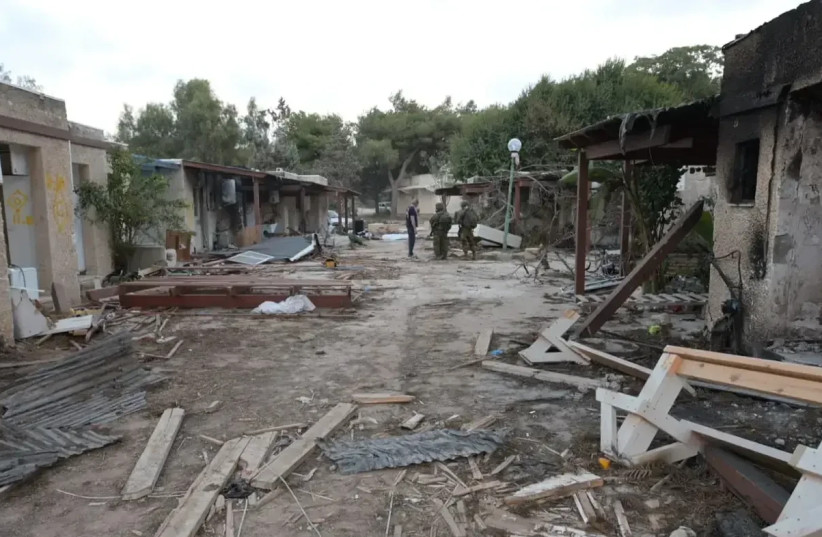The alarms sounded early in the morning on October 7, catching Maj. Matan Elgrably, a 32-year-old officer from Modi'in, in the midst of his command and staff course.
Aspiring to become a major-general in the Givati Brigade, his sharp senses fostered in previous battles proved valuable, ultimately steering him in the right direction.
"Upon receiving the alarm, I immediately messaged the Givati brigadier-general. He ordered me to contact him as soon as possible," Elgrably recounted. Arriving at the brigade headquarters, he swiftly prepared the brigade's Namer (leopard) armored personnel carrier. However, as the rocket fire intensified, he decided that he and another soldier would drive to the location as quickly as possible, with Elgrably riding alongside the brigadier-general in an open Hummer, en route to Sderot.
"We soon realized that the IDF paratroopers had the situation under control and needed our assistance dealing with hostile forces. We drove fast and were met with a horrifying sight. We managed to eliminate three terrorists and found a survivor covered in her own blood inside a tent, whom we promptly rescued," he recounted.
Elgrably calmly recalled the events, maintaining a sense of command and detachment.
"We proceeded on foot through thickets and streams to search for survivors; we managed to save several dozen people," he said. "We identified ourselves by saying 'Givati, Givati,' as just identifying as 'the IDF' wasn't enough anymore. Despite this, some still evaded us. Each time we brought out more people, we sent them for medical treatment while we continued our search."
Encountering a Hamas ambush at Kfar Aza
Approximately two hours later, they concluded their part at a massacre scene and headed toward Kfar Aza. Along the way, they noticed a suspicious spot on the road where two vehicles were stuck. Elgrably and his team got out of their vehicle, encircled the area on foot, and successfully took out three other terrorists who lay waiting in ambush.
Entering the town, they encountered the bodies of terrorists strewn across the road, realizing the daunting challenge ahead.
"We approached a lengthy trench where anyone who dared to raise their head would be captured and met a dire fate. We went from house to house, utilizing cover," he recounted. "In a garden, we spotted a pair of feet with sandals tucked away in one of the corners."
In a remarkable moment of instinct and resourcefulness, Elgrably prevented further loss of life.
"To my right, I thought I saw a Kalashnikov [assault rifle]. One of our soldiers was tempted to think the wounded person was one of ours and began walking toward him, but I firmly grasped his vest, pulling him back, and asked where he was going. His response was, 'He's one of us — he's wearing sandals.' However, I suspected that what lay beside him was a Kalashnikov and not one of ours."
Elgrably instructed the soldier to throw a stun grenade as he positioned himself to encircle the area.
"As the grenade was thrown and the soldier advanced, the wounded man raised the barrel and fired a shot that narrowly missed his leg. Simultaneously, we approached from the opposite side, opened the service door of the kitchen, and discovered seven members of an elite Hamas unit who had been lying in wait, intending to ambush and kill everyone in the garden. We eliminated them in a matter of seconds, leaving them with no time to react."
The terrorists had cunningly set up an elaborate ambush, intending to target approximately 30 soldiers accompanying Elgrably at the scene.
"We obtained valuable intelligence from their communications, which we gave to the Arabic speakers in our unit to translate," continued Elgrably. "From the translation, we gleaned that their forces were assembling in the western part of Kfar Aza. It was at this point that we encountered Lt.-Col. Israel Shumer, who was carrying equipment. We inquired about the situation, and he informed us that his family was trapped in a bomb shelter. We connected him with Givati Brig.-Gen. Liron Batito, who assured him they would rescue his family."
Meanwhile, Elgrably proceeded toward another group of terrorists intending to harm the remaining families and retreat to Gaza. It was at this point that he was wounded.
"On our way to one of the first gardens, a vehicle arrived that opened fire, and I took a bullet to the stomach," he said.
"I immediately clung to the floor and saw an entrance wound... Suddenly I felt a strong force pulling me to the Hummer."
In retrospect, he realizes, another IDF soldier rescued him, taking him to a getaway vehicle under heavy fire. While receiving treatment, the doctor identified an entry and exit hole for the bullet in his stomach and told him "just stay with me." From there he was taken by helicopter to Sheba Medical Center at Tel Hashomer.
"Rushing isn't healthy," the officer explained the decision he made at that house.
"You have to look at everything in the context of its environment," he said, noting that something about the situation as he first saw it didn't seem right.
"This comes from years of experience and cooperation with great combat soldiers," he quipped. "I remember myself often looking at one of the other officers, Cpt. Silberman, and saying, What in God's name are we seeing here? It seemed like these scenes were taken out of a Holocaust movie. But in the end, you realize there is a time for war and a time to process these things."
Despite the near-death experience, for him, returning to the IDF is only a matter of time.
The Jerusalem Post and OneFamily are working together to help support the victims of the Hamas massacre and the soldiers of Israel who have been drafted to ensure that it never happens again.


